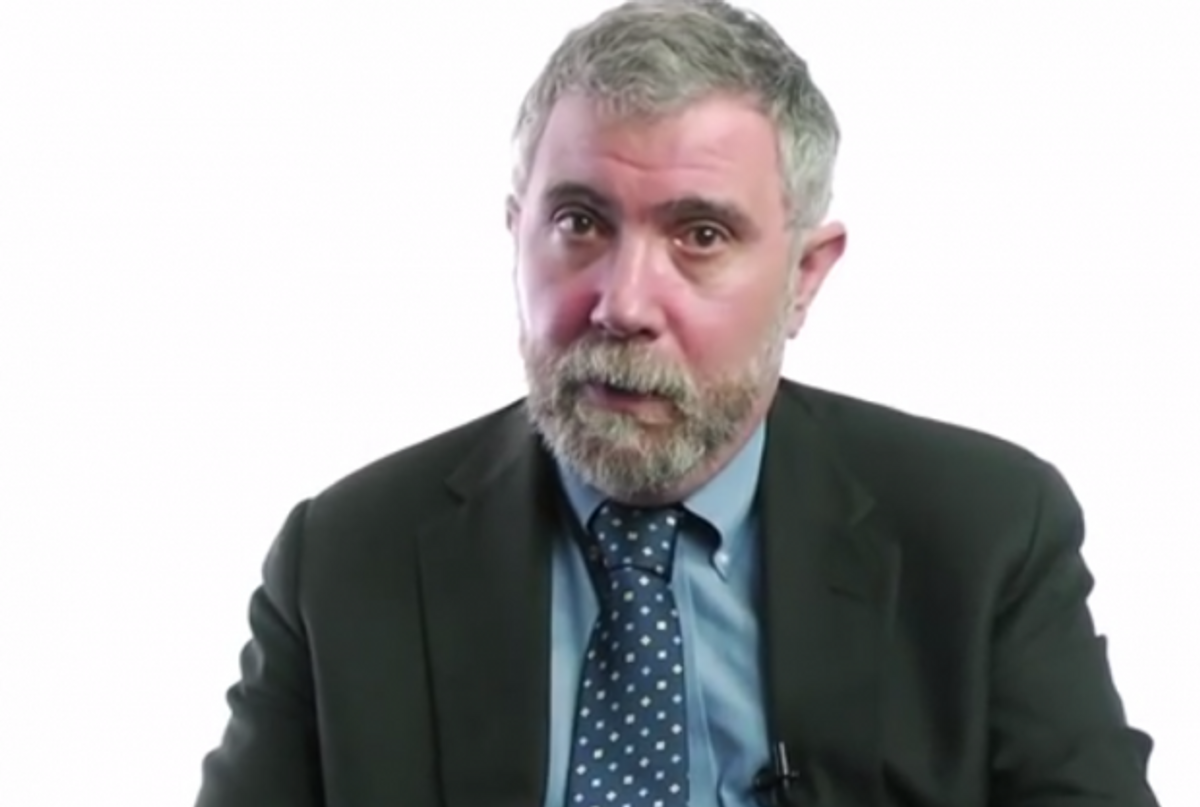This week, the United States and Europe offered a study in contrasts. Buoyed by an increasingly robust economic recovery and, not coincidentally, improving public opinion ratings, President Barack Obama delivered a State of the Union address in which he celebrated the nation's bounceback from the Great Recession, even as he laid out proposals aimed at assisting those who haven't reaped the recovery's benefits. Across the Atlantic, however, European leaders scrambled to stave off the threat of economic catastrophe in the eurozone, with European Central Bank chief Mario Draghi announcing bold measures aimed at stopping a deflationary spiral.
In his New York Times column today, Nobel Prize-winning economist Paul Krugman examines the lessons from the U.S. and Europe's sharply different paths. The divergence is no mere accident, Krugman posits, but is instead the result of a "difference in attitudes."
"Spendthrift, loose-money America is experiencing a solid recovery — a reality reflected in President Obama’s feisty State of the Union address. Meanwhile, virtuous Europe is sinking ever deeper into deflationary quicksand," Krugman writes, adding that he doesn't know anyone who thinks the ECB's latest moves to essentially print more money will be sufficient to head off deflation.
Whereas the Obama administration responded to the Great Recession with a large (if not large enough) stimulus package -- saving and creating jobs and thereby fostering consumer demand -- European leaders mostly shunned stimulus measures, Krugman notes, and they quickly pivoted to an austerity program of deep spending cuts, paired with some tax increases.
That was the fiscal side of policy; monetary officials, meanwhile, were more responsive to the Germans' inordinate fears of high inflation, even as every indicator suggested that deflation posed the biggest threat to the European economy.
Things are improving under Draghi, Krugman argues, but as a central bank leader, Draghi isn't a benevolent dictator; Germany still has considerable power to deny sensible relief to debtor nations like Greece, and there's only so much monetary policy can do when fiscal policymakers adhere to the woefully wrongheaded notion that it's a good idea to cut spending in the midst of a depressed economy:
The terrible thing is that Europe’s economy was wrecked in the name of responsibility. True, there have been times when being tough meant reducing deficits and resisting the temptation to print money. In a depressed economy, however, a balanced-budget fetish and a hard-money obsession are deeply irresponsible. Not only do they hurt the economy in the short run, they can — and in Europe, have — inflict long-run damage, damaging the economy’s potential and driving it into a deflationary trap that’s very hard to escape.
Nor was this an innocent mistake. The thing that strikes me about Europe’s archons of austerity, its doyens of deflation, is their self-indulgence. They felt comfortable, emotionally and politically, demanding sacrifice (from other people) at a time when the world needed more spending. They were all too eager to ignore the evidence that they were wrong.
And Europe will be paying the price for their self-indulgence for years, perhaps decades, to come.

Shares